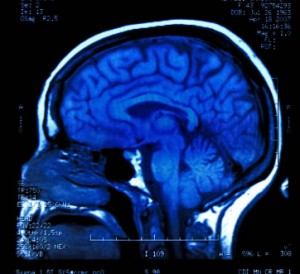Published: August 26, 2011

istockphoto
he way we think and feel about medical treatments can dramatically influence how our bodies respond. A free drug can help treat many disorders with no side effects: our minds.
New Scientist reveals six ways to exploit its power.
Simply believing that a treatment will work may trigger the desired effect even if the treatment is inert – a sugar pill, say, or a saline injection. For a wide range of conditions, from depression to Parkinson’s, osteoarthritis and multiple sclerosis, it is clear that the placebo response is far from imaginary. Trials have shown measurable changes such as the release of natural painkillers, altered neuronal firing patterns, lowered blood pressure or heart rate and boosted immune response, all depending on the beliefs of the patient. There is even evidence that some drugs work by amplifying a placebo effect – when people are not aware that they have been given the drugs, they stop working. read more
Source: New Scientist
Published: August 26, 2011

© istockphoto
esearchers from the
Royal College of Surgeons in Ireland (RCSI) and Beaumont Hospital have conducted a study which has found striking brain similarities in bipolar disorder and schizophrenia. The research has also pinpointed for the first time that a process which controls how information is transmitted from neuron to neuron in the brain is altered in both conditions and may potentially contribute to the developments of improved treatments in the future.
The study was the first to look at sub-regions in the part of the brain known as the hippocampus. Abnormalities in the hippocampus are among the most consistent findings in schizophrenia research and are also implicated in bipolar disorder. Certain areas of the hippocampus (cornu ammonis regions 2 and 3) were found to be different, in terms of how their proteins are affected, in people with schizophrenia and bipolar disorder compared to the general population. The differences observed in these regions were found to be almost identical in both conditions. A process which controls how information is transmitted by the shuttling of proteins to and from the synapse (a junction that permits a neuron to pass a signal to another cell) was also found to be is affected in both illnesses. [continue reading…]
Published: August 25, 2011

© istockphoto
Few people receive formal training on how to manage stress, which may explain why many of us turn to destructive ways of coping.
Although commonly practiced relaxation techniques such as yoga and meditation help, they may not be as effective as learning to sidestep potential stressors before they happen.
Receiving training in stress management will make us better at handling the ups and downs of daily life.
 The September issue of Scientific American spotlights the physical and mental toll that stress exerts. Splintered by Stress: The Good and Bad of Psychological Pressure
The September issue of Scientific American spotlights the physical and mental toll that stress exerts. Splintered by Stress: The Good and Bad of Psychological Pressure
Source: Scientific American
Published: August 24, 2011

Image: Flickr
Researchers at The University of Nottingham are to investigate whether the therapeutic effects of clay modelling could help disturbed teenagers deal with their feelings of anger, anxiety and depression.
Academics are teaming up with professionals in the NHS, Nottingham Contemporary art gallery and local artists for the innovative project that will look at the potential benefits that clay could offer to young people struggling with mental health problems.
Dr Gary Winship, of the University’s School of Education, part of the project team, said: “With its qualities of cold resistance and suitability for moulding, we believe creative play through clay could be an exciting alternative therapy for young people suffering from a range of mental health vulnerabilities.
“Anecdotally, it may offer potential therapeutic effects through the cathartic venting of emotions through banging, squashing, bending or breaking the clay.” [continue reading…]





